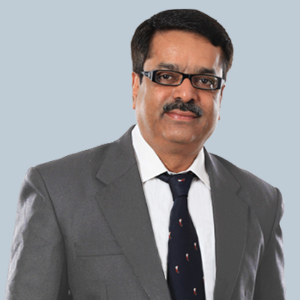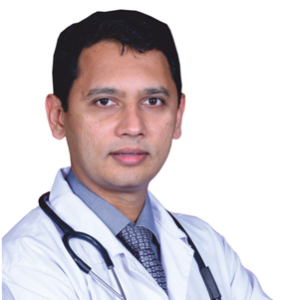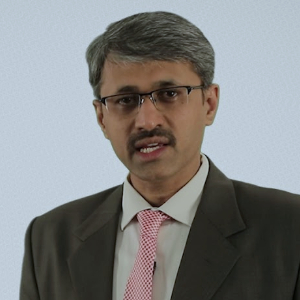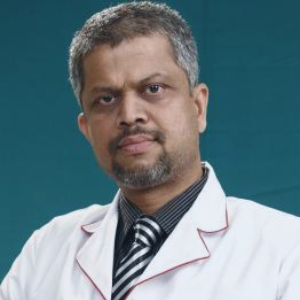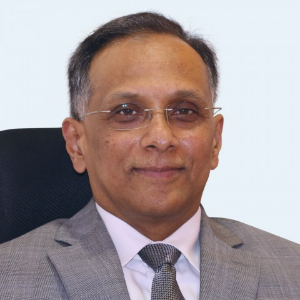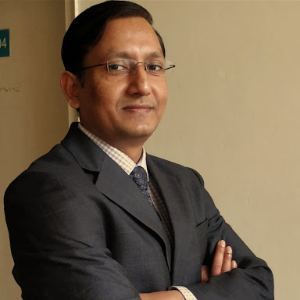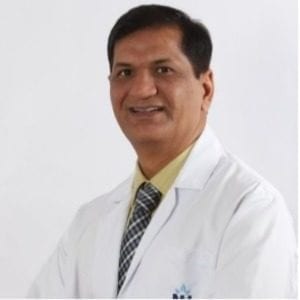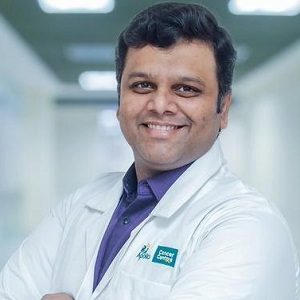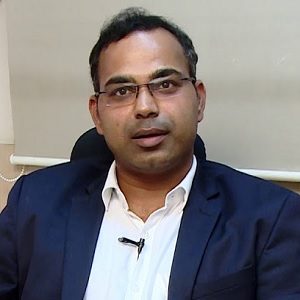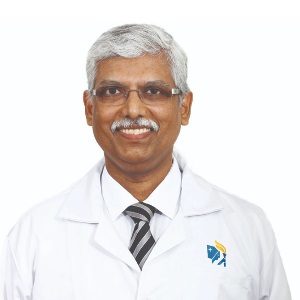Best Doctors in India for Spinal fusion
- Neurosurgeon, Mumbai, India
- Over 25 years’ experience
- Fortis Hiranandani Hospital Vashi Mumbai
Profile Highlights:
- Dr. Ashok Hande is a renowned neurosurgeon in Mumbai who holds the credit for 300 AVMs, 1400 skull base tumor surgeries, 3600 surgeries for cranial and spinal trauma, 1200 lumbar prolapsed intervertebral disc surgeries, 800 cerebral aneurysms, and more than 100 microvascular decompressions.
- He holds an experience encompassing 25+ years and holds the credit for pioneering neurosurgery in Mumbai by bringing in new and advanced neurosurgical procedures for brain and spine surgery.
- Neurosurgeon, Bengaluru, India
- Over 22 years’ experience
- Gleneagles Global Hospital Bengaluru
Profile Highlights:
- Dr. Madhusudan H V is an expert Neurosurgeon in South India with 22+ years of experience in neuro and spine surgery.
- With a specialization in minimally invasive neurosurgeries, Dr. Madhusudan holds the credit for more than 7000 neurosurgeries. He also finds interest in endoscopic interventions and frameless navigations.
- Neurosurgeon & Spine Surgeon, Bengaluru, India
- Over 15 years’ experience
- Gleneagles Global Hospital Bengaluru
Profile Highlights:
- Dr. Praveen K S is a highly qualified neurosurgeon with over a decade of experience in handling all kinds of neurological diseases and disorders.
- He specializes in Pediatric Neurosurgery, Neuro-Oncology, Endoscopic neurosurgery, Aneurysms, and Neuro- Trauma and has performed over 4000 neurosurgeries in his career.
- Neurosurgeon & Spine Surgeon, Mumbai, India
- Over 20 years’ experience
- Wockhardt Hospital Mumbai
Profile Highlights:
- Dr. Rahul Modgi is a highly established neuro and spine surgeon in Mumbai specializing in all types of brain and spine surgeries.
- Dr. Rahul Modgi’s name has been recorded in the Limca Book of Records in 2014 when he removed the heaviest iron rod from the brain of a 17-year-old patient. He has also performed various other risky surgeries for which he has greatly appreciated.
- Neurosurgeon, Bengaluru, India
- Over 30 years’ experience
- Fortis Hospital Banerghatta Bengaluru
Profile Highlights:
- Dr. Rajakumar V Deshpande is a renowned Neurosurgeon in Bengaluru. He performed the first pedicle screw fixation surgery for a spine injury in Bangalore.
- Dr. D V Rajakumar specializes in endoscopic neurosurgeries and has performed some of the most complex brain and spine surgeries through the endoscopic approach. His other areas of interest include minimally invasive neuro surgeries, management of cerebrovascular diseases, and brain tumor surgeries.
- Orthopedic & Spine Surgeon | Max Hospital, Saket, New Delhi, India
- 14+ Years Experience
- Max Super Specialty Hospital, Saket, New Delhi
Profile Highlights:
- Dr. Om Prakash Gupta is a reputed Spine Surgeon in India.
- He is currently functioning as a Consultant – Orthopedics & Spine at Max Smart Super Speciality Hospital, New Delhi
- He has over 14 years of experience.
- Orthopedic and Spine Surgeon, Gurugram, India
- Over 25 years’ experience
- W Pratiksha Hospital
Profile Highlights:
- With over 25 years of experience, Dr. Rajesh Kumar Verma can be generally considered a boon for people suffering from complex, bone, joint, or spine disorders.
- Currently known as one of India’s leading spine experts in India, Dr. Rajesh Kumar Verma performs as many as 50 surgeries in a month. The types of surgeries he performs include all types of spine surgeries, joint replacements, as well as complex trauma surgeries.
- Orthopedic Surgeon and Spine Surgeon, Chennai, India
- Over 12 years’ experience
- Apollo Cancer Centre
Profile Highlights:
- Dr. Madhu Kiran Yarlagadda is an orthopedics – consultant specializing in Joint and spine surgery and works at the Apollo hospitals of Chennai.
- Dr. Madhu Kiran Yarlagadda’s team carried out Robotic Spine Surgery for the first time in South-East Asia and performed Endoscopic Transforaminal Spine Surgery in Chennai.
- He treats spine diseases and has the facilities and expertise to perform robotic spine surgery. Along with that, he treats patients with joint and other orthopedic issues.
- Spine Surgeon and Orthopaedic Surgeon, Chennai, India
- Over 18 years’ experience
- Apollo Hospitals Greams Road
Profile Highlights:
- Dr. Muralidharan Venkatesan is a consultant in spine surgery from Chennai.
- He provides comprehensive cervical (neck), thoracic (upper back), and lumbosacral (lower back) conditions treatment.
- Dr. Venkatesan pursued MBBS, MRCS, and a fellowship FRCS and shifted his specialization to spinal surgery.
- Dr. Venkatesan has his papers published in several journals.
- Orthopedic Surgeon and Spine Surgeon, Chennai, India
- Over 23 years’ experience
- Apollo Hospitals Greams Road
Profile Highlights:
- Dr. Ravi Venkatesan is a spine surgery specialist from Chennai, Tamil Nadu.
- His experience in spine surgery, orthopedics, and spine deformity surgery date back nearly 23 years.
- Dr. Venkatesan has performed several surgeries and has been an active member of various orthopedics groups.
- Many organizations have recognized his service and have awarded him for his dedication.
Best Hospitals in India for Spinal fusion
Hospital Highlights:
- Apollo Hospitals is a private healthcare group in India, with its headquarters based in Chennai. Established in 1983 by Dr. Prathap C. Reddy, the group offers a wide range of medical treatments and services across various specialties.
- It is renowned for emphasizing innovation and utilizing cutting-edge medical technologies into patient treatment.
- Known as India’s first corporate hospital, Apollo Hospitals is often credited for pioneering the private healthcare revolution in the country.
- With clinics and hospitals located all throughout India, Apollo Hospitals is a nationwide healthcare organization. Its presence can also be found in foreign countries.
- Preventive health examinations, medical and surgical treatment, and diagnostic centres are just a few of the services that the Apollo group provides.
- The group has several centres of expertise, including Cardiac Sciences, Neurosciences, Orthopedics, Emergency Care, Cancer Care, and Organ Transplantation.
- City: Chennai, India
Hospital Highlights:
- RIMC is a multi-specialty hospital in a sprawling area of 36 acres located in Chromepet, Chennai, Tamil Nadu, India.
- The facility has 450 beds including 130 critical care beds, 9 operating rooms, modern reference laboratories and radiology services, and is conveniently located near road, rail and air transportation.
- RIMC is led and managed by world-renowned physicians committed to healthcare.
- RIMC offers the broadest range of clinical care, education, and research. The hospital offers state-of-the-art technology and modern treatment facilities designed to provide health care at an affordable cost.
- Rela Institute is driven by patient needs, comfort and confidence.
- City: New Delhi, India
Hospital Highlights:
- Fortis Hospital in Shalimar Bagh is a multi-super specialty hospital that strives to provide world-class patient care by leaving no stone unturned.
- Fortis, Shalimar Bagh, with 262 beds and a 7.34-acre footprint, provides the best level of medical care through its team of doctors, nurses, technicians, and management professionals.
- City: Bengaluru, India
Hospital Highlights:
- Established in 2007, the Apollo Hospitals Bangalore is a 300-bed multispecialty hospital situated in Bannerghatta Road, Bangalore.
- Equipped with the state-of-the-art technology, it is a leading hospital dedicated to providing healthcare needs to patients with compassion and expertise.
- It is the first hospital to have completed the highest number of Robot Assisted Heart Surgeries in India.
- Over the years, it has successfully conducted some of the rarest medical procedures such as spinal angiolipoma excision, autologous chondrocyte implantations, and tibial tuberosity shift with MPSL reconstruction.
- The Apollo Hospitals Bangalore has the reputation of performing the greatest series of airway stents in the country.
- Additionally, the hospital is known for providing comprehensive treatment in specialties such as gastroenterology, urology, gynecology, oncology, colorectal surgery, etc.
- The “The Minimal Access Surgery Centre” (MASC), one of Apollo Hospitals, Bangalore’s premier Centres of Excellence, is devoted to the use of minimally invasive surgical procedures.
- In 2013, THE WEEK-A C Nielsen, Best Hospital Survey ranked Apollo Hospitals Bangalore as the 2nd best multi-speciality hospital in Bangalore.
- City: Mumbai, India
Hospital Highlights:
- Gleneagles Global Hospital The 450-bed facility comprises of 17-stories, housing state-of-the-art infrastructure, and advanced medical care facilities.
- The hospital offers end-to-end clinical, surgical, and diagnostic services. It is equipped with a team of eminent medical professionals aided by qualified nurses and medical staff
- The Hospital offers advanced Endoscopic procedures, Hepatobiliary and Liver Surgeries, Surgical and Medical Gastroenterology, Bariatric Surgery, and Robotic surgery.
- The hospital is a center of excellence for Orthopedics, Joint Replacement, Knee Replacement, and Hip Replacement surgery.
- City: Hyderabad, India
Hospital Highlights:
- CARE Hospitals were established in the year 2000, by CARE Group.
- The multispecialty hospital has 435 beds, including 120 critical care beds, with an annual inflow of 180000 outpatients and 16,000 in-patients.
- The hospital provides specialty medical services in Cardiology, Cardiothoracic Surgery, Pediatric Cardiology, Pediatric Cardiothoracic Surgery, Neurology, Neurosurgery, Nephrology, and Urology.
- The hospital has the first dual source, 128 slice CT scanner (for high precision cardiac imaging) – the first of its kind in south India.
- The hospital offers a wide range of accommodation facilities for the convenience of its varied patient base, ranging from general wards to super deluxe rooms.
- City: Mumbai, India
Hospital Highlights:
- Fortis Hospital in Mulund is a 315-bed multi-speciality tertiary care hospital with five JCI accreditations that offers a wide variety of diagnostic and treatment services. The Fortis Hospital in Mulund delivers patient-centred treatment with cutting-edge technology, highly skilled and experienced surgeons, and paramedical staff.
- This institution houses Maharashtra’s largest multi-organ transplant centre. It is also the first heart transplant centre in western India to conduct 100 or more consecutive heart transplants in under four years. It is the only hospital in the city to have multi-organ transplants and has handled the youngest patient for angioplasty. Fortis Hospital Mulund now boasts the first advanced surgical robot in central Mumbai.
- Cardiology and heart surgery, urology, nephrology, neurosciences, orthopaedics, digestive care, emergency and critical care, and maternity care are among the services provided by the hospital.
- City: New Delhi, India
Hospital Highlights:
- Manipal Hospitals, Dwarka, is a super-specialty hospital in Dwarka, New Delhi, which is a part of Manipal Hospitals Group.
- The hospital aims to provide the best treatment on par with international standards at a fraction of the cost.
- Equipped with 380 beds, the hospital is also one of the new age hospitals which are equipped fully with state-of-the-art infrastructure, cutting-edge technology as well as the latest and advanced clinical practices. The hospital also has 13 modular Operation theatres with 118 beds which are solely meant for critical care.
- The hospital comprises internationally acclaimed doctors and highly professional and experienced hospital and medical staff who are able to provide preventive, therapeutic, and diagnostic services all under one roof.
- City: Chennai, India
Hospital Highlights:
- Located in Chennai, India, MGM Healthcare is a top multispecialty hospital that provides all medical services under one roof.
- Since its founding in 2019, MGM Healthcare has quickly become a leading national referral centre, creating several innovative flagship initiatives.
- MGM Healthcare combines next-generation medical and digital technologies to provide better patient results.
- With 12 centres of excellence, more than 400 inpatient beds, 100 intensive care unit beds, and 24/7 emergency care, MGM Healthcare leaves no chance in redefining the patient experience in Chennai.
- MGM Healthcare boasts 250+ expert doctors across 30+ departments, including Cardiology, Pulmonology, Neurology, Obstetrics & Gynaecology, and more.
- They house 12 specialized Centres of Excellence, including Neurosciences, Orthopaedics, and Multi-Organ Transplantation.
- Their team of doctors, nurses, and paramedics works together to give every patient individualized treatment.
Hospital Highlights:
- Lilavati Hospital & Research Centre is India’s premier multi-speciality tertiary care hospital and has been recognised as a global medical excellence centre.
- Lilavati Hospital & Research Centre has built an unrivalled level of trust with its patients over the years, thanks to a solid foundation that comprises cutting-edge facilities, the best medical competence, research, education, and charity endeavours.
- The hospital is quite proud of the fact that it now serves patients from all kinds of backgrounds, not just from the United States but from all around the world.
- The hospital has a total of 323 beds, one of the largest Intensive Care Units (ICUs), 12 Operation Theatres with modern amenities, over 300 consultants, and almost 1,800 personnel.
Spinal Fusion
Spinal fusion is a surgical procedure which involves connecting two or more vertebrae in your spine permanently to eliminate motion between them. It involves techniques that can mimic the normal healing process of any broken bones. The procedure is performed to fuse together two or more vertebrae so that they may heal into a single, solid bone. This can help in eliminating painful motion as well as restoring stability to your spine.
This surgery is recommended only when your doctor is able to pinpoint the source of your pain. This procedure can help relieve symptoms of many back problems, such as degenerative disk disease, fractured vertebra, spinal stenosis, herniated disk, tumor, etc.
Purpose
Spinal fusion can permanently connect two or more vertebrae in your spine for improving stability, correcting a deformity as well as for reducing pain. Your doctor might recommend spinal fusion to treat any of the following:
Deformities of the spine- Spinal fusion helps in correcting spinal deformities, such as a sideways curvature of the spine termed as scoliosis.
Herniated disk- Spinal fusion can also be used for stabilizing the spine after removal of a damaged (herniated) disk.
Spinal weakness or instability- If there is excessive or abnormal motion between two vertebrae, this can lead to your spine becoming unstable. This is usually a common side effect of severe arthritis in the spine. Spinal fusion can be used for restoring spinal stability in such cases.
Preparation
Prior to your surgery, the surgical site will need to be cleaned with antiseptic and any hair will need to be trimmed. The surgical team can also order a swab sample to monitor any unhealthy bacteria in your nose. If you are taking any kind of medication, you need to let your doctor know. Before your surgery, you might need to stop taking them.
During the Procedure
You will be under general anesthesia during the procedure. There are a variety of techniques for performing this procedure. The technique which your surgeon uses can depend on the location of the vertebrae to be fused, the reason for your fusion as well as your body shape and overall health.
The procedure generally involves the following steps:
Incision
To gain access to the vertebrae being fused, your surgeon will first be making an incision in one of three locations, viz. in your neck or back directly over your spine, on either side of your spine, in your abdomen or throat. This will allow your surgeon to access the spine from the front.
Bone graft preparation
The bone grafts that will actually fuse the two vertebrae can come from a bone bank or from your own body, usually from your pelvis. If your own bone is being used, the surgeon will make an incision above your pelvic bone; then he/she will remove a small portion of it after which he will be closing the incision.
Fusion
For fusing the vertebrae together permanently, the surgeon will need to place the bone graft material between the vertebrae. He/she can use metal plates, screws or rods to help hold the vertebrae together while the bone graft heals.
There are surgeons who use a synthetic substance instead of bone grafts in selected cases. These synthetic substances can help to promote bone growth as well as speed the fusion of the vertebrae.
After spinal fusion
Usually after spinal fusion, you might need to stay in the hospital for two or three days. You may also experience some pain and discomfort, though it can be controlled with the help of medications.
After you reach home, remember to inform your doctor if you exhibit any signs of infections, such as:
- Redness, tenderness, or swelling
- Shaking chills
- Wound drainage
- Fever higher than 100.4 F (38 C)
It will take several months for your bones to heal and fuse together. You might also be recommended to wear a brace for some time to keep your spine aligned correctly. Physical therapy can guide you on how to sit, stand, and walk in a manner that can help keep your spine properly aligned.
Though spinal fusion is an effective treatment for fractures and deformities in the spine, it will not prevent you from developing back pain in the future. Most of the degenerative conditions in your spine are caused by arthritis and this surgery cannot cure your body of that disease.
Risks and complications
Like most surgeries, there are also a few risks associated with spinal fusion. Before your procedure, you need to discuss each of them with your doctor, so that your doctor can take specific measures to help avoid potential complications. Potential risks and complications of spinal fusion are:
- Infection- Antibiotics are given on a regular basis to the patient before, during and often after surgery so that the risk of infections can be lessened.
- Bleeding- A certain amount of bleeding can be expected, though this is not typically significant. Blood donation is not usually required before the procedure.
- Pain at the graft site- Few patients can experience persistent pain at the bone graft site.
- Recurring symptoms- Some patients can experience a recurrence of their original symptoms. There are usually various reasons for this. If your original symptoms recur, you will need to inform your doctor so that he/she can determine the cause.
- Pseudarthrosis- In this condition, there is not enough bone formation. Patients who smoke are usually more likely to develop this condition. Diabetes and older age can also be factors. Moving too soon before the bone is able to start fusing, might result in a pseudarthrosis as well. If this condition occurs, a second surgery may be required for a solid fusion.
- Nerve damage- Nerves or blood vessels can get injured during these operations, though such complications are rare.
- Blood clots- The formation of blood clots in the legs is another uncommon complication. These can pose significant danger if they break off and travel to the lungs.
It is quite important for you to carefully follow your doctor’s instructions relating to the warning signs of blood clots and infection. These complications can occur during the first few weeks after your surgery.

